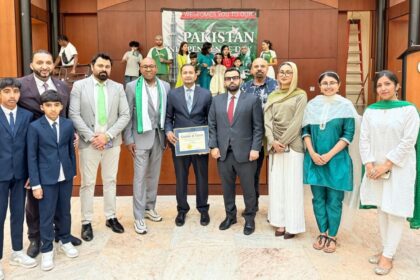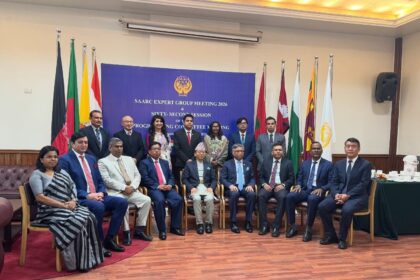**Federal Minister Rana Tanveer Hussain Emphasizes Industry-Agriculture Collaboration at ICL Event**
Federal Minister for National Food Security and Research, Rana Tanveer Hussain, highlighted the vital role of industrial and agricultural collaboration in driving sustainable development in Pakistan during his keynote address at a major event organized by Ittehad Chemicals Limited (ICL). The event showcased the company’s progress in technological advancement, product diversification, and environmental initiatives.
In his remarks, Hussain praised ICL’s achievements, noting the chemical sector’s fundamental contribution to agricultural growth. He stressed the importance of chemicals such as caustic soda, chlorine, surfactants, and water treatment compounds in supporting agriculture. The minister emphasized that a strong partnership between the chemical industry and the agricultural sector is essential for Pakistan’s progress, underscoring the need for local production capabilities, climate-adaptive technologies, and modern research.
Hussain revealed that his ministry is developing a comprehensive strategy to encourage the use of locally-manufactured, climate-resilient agricultural inputs. These include surfactants, micronutrients, water-saving solutions, and soil conditioning agents. He insisted that all agricultural chemicals must adhere to strict environmental and safety standards.
Acknowledging ICL’s industry leadership, he highlighted the company’s globally recognized caustic soda plant, known for its high energy efficiency and daily production capacity of 425 metric tons. The minister also lauded ICL’s successful foray into surfactant manufacturing in 2019, which has gained both national and international recognition for quality. He specifically commended ICL’s environmental efforts, such as the installation of an effluent treatment plant and initiatives to reduce air emissions.
Hussain emphasized the importance of closer collaboration between industry and academia, urging companies like ICL to work with agricultural universities and research institutes to develop solutions tailored to Pakistan’s crops and climatic conditions. He identified investment in clean technologies, research and development, and professional training as crucial for unlocking Pakistan’s industrial and agricultural potential.
Reaffirming the ministry’s commitment, Hussain stated that their vision extends beyond merely increasing agricultural output. He advocated for sustainable, inclusive, and locally empowered growth in agricultural production. The minister called on industry leaders to ensure transparency in pricing, product safety, and integrity in supply chains, so that Pakistani farmers benefit from quality inputs without exploitation.
He concluded by asserting that initiatives like those of Ittehad Chemicals should set the standard for industry conduct. He pledged full support for companies that invest simultaneously in human welfare, environmental protection, and economic development, guiding Pakistan towards agricultural self-sufficiency, environmental stewardship, and economic stability.










